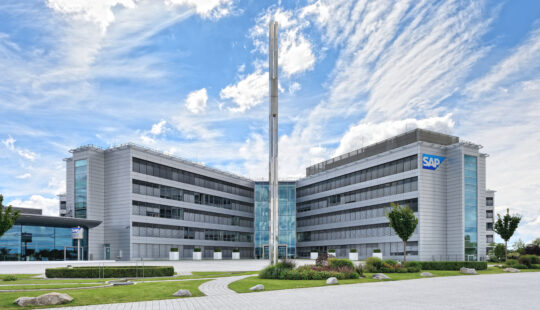A second-year student at BCOM Government College Balmatta, Gowramma is pursuing commerce to become a teacher. She first heard of Code Unnati through her career coach and attended the classes out of curiosity. She believes it was the best decision she has made.
Through Code Unnati, Gowramma has not only been exposed to a world of possibilities and opportunities available to her when she graduates, but has also gained confidence in her skills. Gowramma is not alone in thinking that Code Unnati has had a positive effect on her confidence and opened up countless possibilities as a young person taking her first steps in her career.
Ashish attended a Code Unnati training where he was inspired to come up with solutions to problems that his community was facing. He thought of the large number of single-use polypropylene bags that were being thrown away. He chose to address this problem, as it was affecting his community directly – these bags were either being burnt or buried in the ground, and there was no way to recycle them. Ashish has since made a plan to start recycling polypopylene bags and has been connected to financial assistance to buy the machinery. He credits Code Unnati and its team for helping him realize a solution to his city’s problem.
From Gowramma, who is eager to begin exploring new opportunities in her career, to Ashish, who thinks outside the box in search of a solution to a more sustainable environment, Code Unnati is powering opportunity through digital inclusion.
Launched in June 2017 with SAP India Corporate Social Responsibility, Code Unnati is a corporate-to-citizen initiative to impart digital literacy among adolescents, citizens, and children and employable IT skills among youth. Through the initiative, they are getting that guiding light to see ahead to a bright future. This initiative is helping millions of youths think out of the box and work toward solving major social problems.
Developing digital skills has become critical to professional success; the core objective of Code Unnati is digital inclusion. When Code Unnati first launched, 90% of India’s population, or almost 1.2 billion people, were not digitally literate. For young people to engage meaningfully in society, youth must be equipped with the skills and opportunities to advance their vision of a connected future. In our increasingly digital society, low information and communication technology skills continue to remain a barrier to employment. Inclusive, equitable development and economic growth requires building an enabling ecosystem that can provide and define career pathways. This can be best achieved through private sector collaborations including government organizations. It is only by preparing youth with digital education and opportunities that the UN Sustainable Development Goal of decent work and economic growth can be achieved.
The success stories of Gowramma, Ashish, and countless other youth, many of whom are the first in their entire generation to get jobs in the IT sector, say it is them who will lead change and pave the way for the future. They are determined to build their own future and become first-generation learners with a job in hand. This demonstrates the resilience and self-efficacy they have to achieve something in life and become a role model for their society.
We are celebrating all those young people who have emerged as an inspiration for others, because there is no one way to make a difference.
Shivani Sinha is audience relations associate of CSR for SAP India subcontinent.
Gunjan Patel is regional director and head of CSR for SAP India subcontinent.



